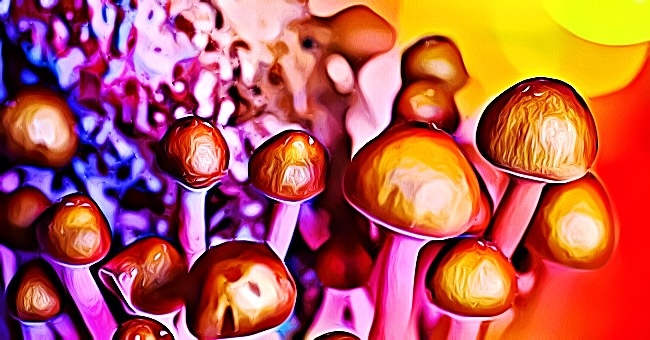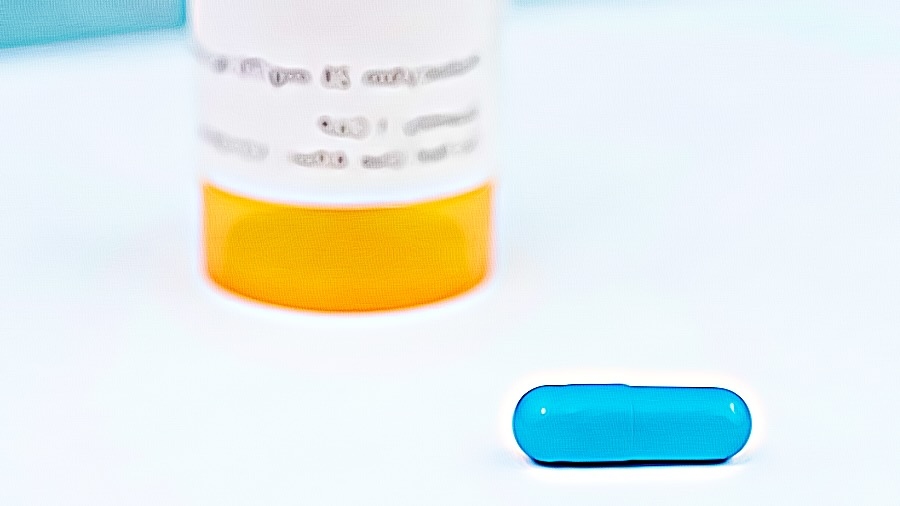Psilocybin (4-phosphoryloxy-N, N-dimethyltryptamine) and psilocin are chemical compounds from certain fresh or dried hallucinogenic mushrooms in Mexico and other parts of South America as well as some northwest regions in the United States.
Psilocybin belongs to the indole-alkylamine (tryptamine)class. It is similar in structure to LSD or lysergic acid diethylamide.
Psilocybin, also called “magic mushroom,” is abused due to its euphoric and hallucinogenic effects that can bring about a “trip” that its users want. The psychedelic effects result from the action of the psilocybin on the central nervous system serotonin receptors.
What Are the Uses of Psilocybin?
Psilocybin and psilocin are most commonly produced in the laboratory. However, they are also made endogenously using several species of mushrooms. The psychoactive effects of psilocybin can be used for therapeutic purposes.
Psilocybin has been used in psychotherapy to treat patients who suffer from existential anxiety. In cognitive-behavioral therapy, it has been used to treat migraine and cluster headaches.
Psilocybin has also been found to be effective in treating acute alcohol withdrawal symptoms.
That is why several studies have been conducted on using psilocybin to treat alcoholism. In one study that involved 13 participants, psilocybin produced long-term sobriety in about 60% of the participants.
The patients also reported that their drinking stopped completely for at least six months after the sessions.
What Are the Effects of Using Magic Mushrooms?
The effects of psilocybin are influenced by the dose and setting the user takes the drug. It is generally more potent when consumed orally as opposed to smoking. The effects of Magic Mushroom are more pronounced when taken in higher doses. Users with a history of mental health issues such as schizophrenia might have a more severe reaction to magic mushrooms.
Some of the effects include:
- Altered perception of reality
- Distorted sense of time
- Altered sense of color, sound, touch, and smell
- Enlightenment experience
- Feelings of joy
- Sense of oneness with nature and the universe
- Feelings of intense happiness
- Perceptions of movement, floating, or going through a tunnel
- Long-term use of magic mushrooms can lead to undesired effects such as:
- Visual disturbances or hallucinations
- Anxiety
- Paranoia
- Distress
- Risk of getting injured or having a car accident
- Psychosis
What Are the Long-Term Effects of Magic Mushrooms?
If you are an occasional user of magic mushrooms, the long-term effects are minimal. However, for regular users of psilocybin, the long-term effects can be severe. The effects of magic mushrooms can affect your brain even after the effects have worn off.
In fact, a study conducted in 1969 revealed that there was evidence that magic mushrooms can induce changes in the brain that can last for days.
If you are addicted to magic mushrooms, you can develop a tolerance for them over time. You will therefore require higher doses to achieve the same desired effects. This can have severe long-term consequences.
What Are the Methods of Intake?
Psilocybin is available in different forms, including tablets, capsules, and liquids. Depending on the severity of the desired effects, the amount of psilocybin can be increased.
The effects of psilocybin usually peak within 30 to 90 minutes after ingestion and persist for up to 6 hours.
Psilocybin is mostly used by crushing or chewing small amounts of dried mushrooms. The mushrooms can also be brewed and consumed as tea.
How Long Before the Magic Mushrooms’ Effects Kick in?
The effects of magic mushrooms are typically felt within 40 minutes after ingestion, but it also depends on the dose and the person’s tolerance.
How Long Do Magic Mushrooms Remain in Your System?
The half-life of psilocin, the active metabolite of psilocybin, is about 2 hours in humans. Psilocin is extensively metabolized in the liver, and there are no known active metabolites of psilocin. Psilocin is eliminated in the urine and feces as psilocin and 4-hydroxylated and dephosphorylated derivatives.
In one study, participants who had taken psilocybin reported that the effects of the magic mushrooms had lasted for about 6 hours. Therefore, taking the psilocybin can only be used to treat a few conditions that require a short-term treatment.
If you have taken a large amount of psilocybin mushrooms, you are likely to experience the effects for about 8 to 14 hours. The effects might also last for more than 24 hours.
It is worth noting that psilocin is detectable in urine for about 1 to 2 days after psilocybin ingestion. In one study, the participants were said to have had negative urine tests up to 10 days after ingesting the psilocybin.

How Long Does the High Last?
The amount of time that the high lasts varies depending on the dose of magic mushrooms that you take. The “buzz” will, of course, depend on the dose, but generally, when you take higher doses, you are more likely to have a longer duration of feeling high.
In most cases, psilocybin remains in the body for about two days after you have taken it.
Is There Any Drug Test That Detects Psilocybin?
There are no commonly used tests that can detect psilocybin. Therefore, employers and law enforcement agencies cannot use psilocybin as a marker for workplace safety or impaired driving.
When Do You Need to Seek Medical Attention?
Some of the adverse effects of magic mushrooms can be severe and require medical attention. Some of the symptoms that require medical attention include:
- Paranoia
- Panic attacks
- Psychosis
- Feelings of depression even after the effects of the magic mushrooms have worn off
- Suicidal thoughts
- Extreme anxiety
- Tachycardia
- Tremor
- Seizures
- High blood pressure
Are Magic Mushrooms Highly Addictive?
Magic mushrooms are not considered highly addictive. However, there are cases where some users get addicted to magic mushrooms causing them to develop some tolerance to it. If you are trying to stop using magic mushrooms but cannot do so, you are likely to be addicted to them.
A study conducted by John Hopkins University in the year 2008 revealed that magic mushrooms are considered to be less addictive than LSD.
Magic mushrooms have a relatively low dependence risk with an addiction rating of 9 out of a possible score of 40.
Pregnant Women and Psilocybin
Magic mushrooms are known to cause congenital disabilities and are therefore not recommended for pregnant women.
According to a study conducted in 2016, pregnant women taking magic mushrooms were more likely to give birth to infants with higher concentrations of psilocybin in their urine.
Magic mushrooms are known to increase the risk of miscarriage, so if you are pregnant or trying to become pregnant, you are probably better off avoiding magic mushrooms altogether.
Pregnant women who had taken magic mushrooms were also likely to give birth to children who had the following problems:
- Small head circumference
- Physical, cognitive, and behavioral problems
- Poor motor and behavioral development
- Poorly controlled asthma
Caregivers and parents can also develop psychedelic symptoms in babies exposed to psychedelic drugs.
If you are pregnant and have taken magic mushrooms, it is essential that you seek emergency medical attention.
Conclusion
Magic mushrooms are hallucinogens that are not used as a form of recreational drugs. The drug is toxic to the brain and can have serious side effects even after the effects have worn off.
If you feel that you or someone you know has a problem with magic mushrooms, do not wait but seek help from an addiction center as soon as possible. In most cases, magic mushrooms won’t cause any long-term effects. However, users who have tried magic mushrooms for a long time can lead to severe psychological disorders that might require professional intervention.

